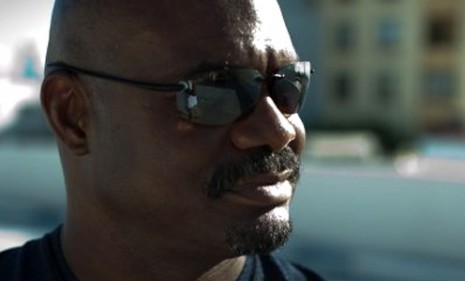Dave Duerson and the NFL concussion crisis
A former player's dramatic suicide again raises the spectre of the link between brain damage and football

A free daily email with the biggest news stories of the day – and the best features from TheWeek.com
You are now subscribed
Your newsletter sign-up was successful
When former Chicago Bears defensive back Dave Duerson committed suicide last week with a gunshot to the chest, he left a handwritten note near his body that read:"PLEASE, SEE THAT MY BRAIN IS GIVEN TO THE NFL’S BRAIN BANK." Duerson's apparent intention was that his brain be studied for the debilitating effects on-field concussions can have on players years after they retire. Duerson is just the latest in a string of players who have roiled the NFL establishment with revelations of post-retirement mental breakdowns, which many doctors believe can be traced to brain-rattling tackles years earlier. Here, a brief guide to the NFL's concussion crisis:
Why would Duerson donate his brain?
Among all retired NFL players, Duerson was likely one of the most well-informed about the devastating consequences of crushing tackles and blocks. He served on a six-man volunteer panel that oversaw applications by retired players to be covered under the NFL's disability plan. He also worked for the 88 Plan, a fund created in 2007 to help provide care for more than 150 players with dementia. (See a discussion about brain injuries)
The Week
Escape your echo chamber. Get the facts behind the news, plus analysis from multiple perspectives.

Sign up for The Week's Free Newsletters
From our morning news briefing to a weekly Good News Newsletter, get the best of The Week delivered directly to your inbox.
From our morning news briefing to a weekly Good News Newsletter, get the best of The Week delivered directly to your inbox.
Was his suicide linked to his football career?
Apparently not, although the circumstances around his death remain murky. One thing that is clear is that Duerson had been in serious financial trouble for years. He filed for bankruptcy in September, listing $14.7 million in liabilities. His house had gone into foreclosure in 2007. Though Duerson suffered from blurred vision and pain, it is not clear to what extent he blamed his NFL career for the mental spiral that ended in his death. Regardless, says Barry Petchesky at Deadspin, Duerson's "sad story" fits into a pattern of other ex-players who "were chewed up and spat out by the NFL's meat grinder," without a mental or financial "safety net."
What might his brain reveal?
The key issue, says Alan Schwarz at The New York Times, is whether Duerson's brain will show "chronic traumatic encephalopathy," the degenerative disease found posthumously in other ex-players, and linked to depression and suicide. Duerson's brain will be sent to the Boston University Center for the Study of Traumatic Encephalopathy, which has found that NFL players with a history of concussions show abnormal amounts of toxic tau protein, which kills brain cells.
A free daily email with the biggest news stories of the day – and the best features from TheWeek.com
What is the NFL's take?
It initially adopted a defensive posture, but over the past two years, as the story began to devolve into a public-relations nightmare, the league stepped up its efforts to address the issue head-on. Commissioner Roger Goodell imposed stiff penalties for helmet-to-helmet hits, and the NFL has donated $1 million to Boston University to pay for further study.
And the players?
They have criticized Goodell for an inconsistent message, in part because of his stated desire to expand the NFL season from 16 to 18 games, which could increase the risk of injuries. With labor talks at a standstill and a possible strike looming, Goodell's stance on player health care will be a major sticking point.
Sources: New York Times (2), Huffington Post, Deadspin, Washington Examiner
-
 The ‘ravenous’ demand for Cornish minerals
The ‘ravenous’ demand for Cornish mineralsUnder the Radar Growing need for critical minerals to power tech has intensified ‘appetite’ for lithium, which could be a ‘huge boon’ for local economy
-
 Why are election experts taking Trump’s midterm threats seriously?
Why are election experts taking Trump’s midterm threats seriously?IN THE SPOTLIGHT As the president muses about polling place deployments and a centralized electoral system aimed at one-party control, lawmakers are taking this administration at its word
-
 ‘Restaurateurs have become millionaires’
‘Restaurateurs have become millionaires’Instant Opinion Opinion, comment and editorials of the day